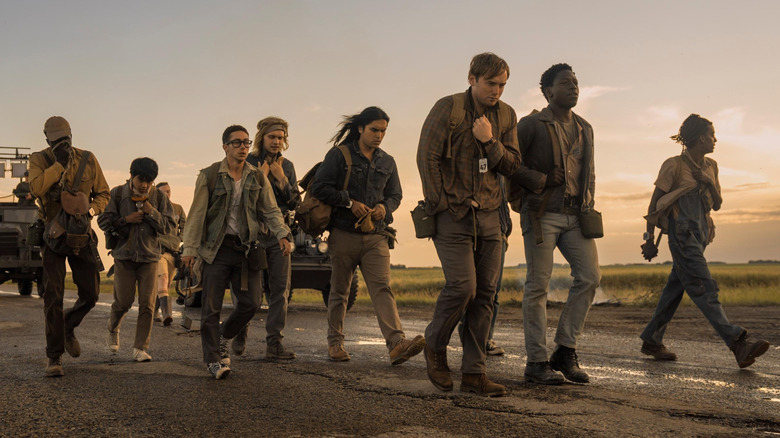Legendary horror author Stephen King has never shied away from giving his honest opinions about movie adaptations of his works. Even with the highly acclaimed 1980 film version of “The Shining,” King was outspoken about how much he didn’t like the movie and has always been more than willing to go into detail as to why. It doesn’t help that he sometimes sits out participating in those adaptations entirely, but to his credit, not everyone who makes one of his movies reaches out to him for feedback in the first place.
In the case of the excellent “The Long Walk,” based on his novel of the same name — though published under his occasional pseudonym, Richard Bachman — King apparently had a decent amount of creative input. In addition to an especially brutal condition he had for the filmmakers, King also demanded that a small but significant tweak be made to the script before he’d give it his full approval.
The story revolves around a cruel contest that takes place in a dystopian version of the U.S., in which a group of young men must maintain a steady walking speed of four miles per hour, and are eliminated — in other words, executed — if they fall below that speed. The first draft of the script kept King’s original speed of four miles per hour, only King objected and insisted it be changed to three.
King felt the walking speed was too fast in the novel
One of the scariest types of horror movies are ones that make everyday things terrifying in some way. And in “The Long Walk,” just the concept of people walking down a road is turned into a frightening life-or-death situation by the movie’s premise. Having to just walk and walk without stopping at any speed would prove difficult after a while, but needing to walk at a fairly brisk three miles per hour really ups the severity of the challenge.
When King saw that the script he was sent retained the four-mile-per-hour rule from the book, the only note he gave was that the speed be slowed down by one mile. But this wasn’t just some creative power play: Years after writing the book, King reasoned that, while three miles an hour is obviously tough, it’s not impossible, and could be feasibly maintained for an extended period.
Four, on the other hand, would have now stretched believability a bit too much for King’s liking. In the end, he didn’t feel it would be realistic for anyone to maintain that pace for as long as the characters in the movie — well, some of them, anyway — are able to last.


